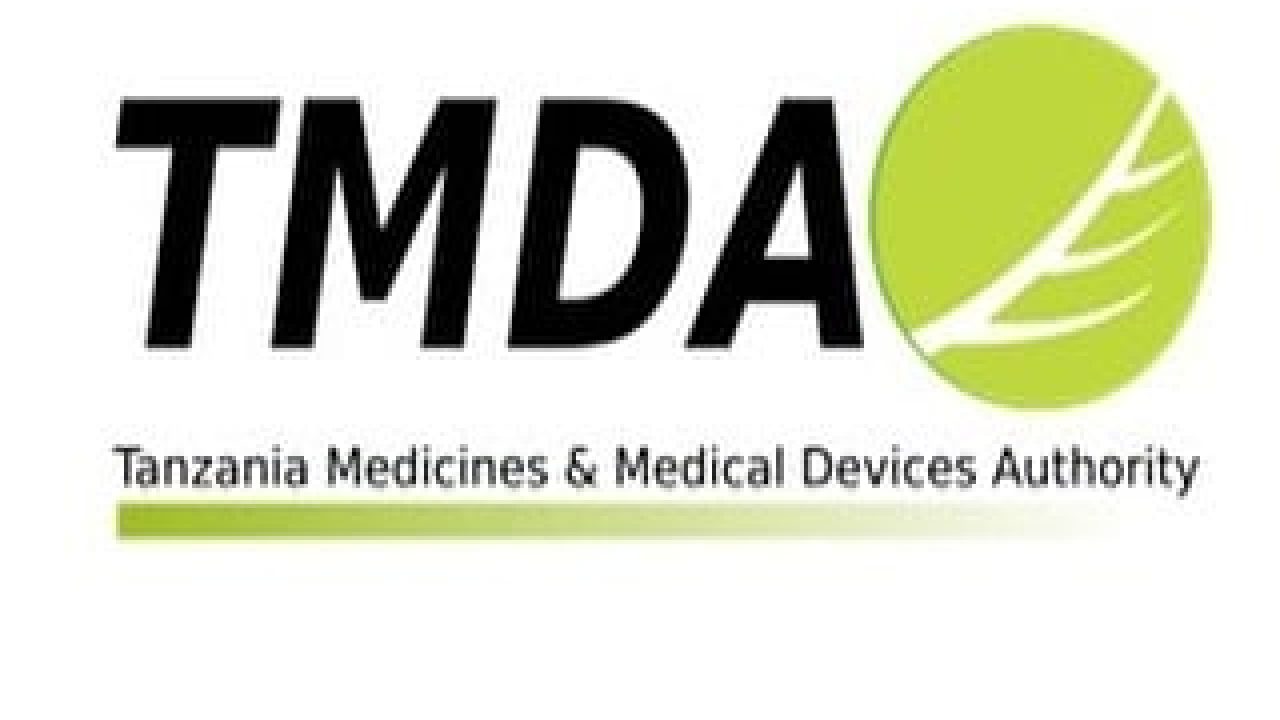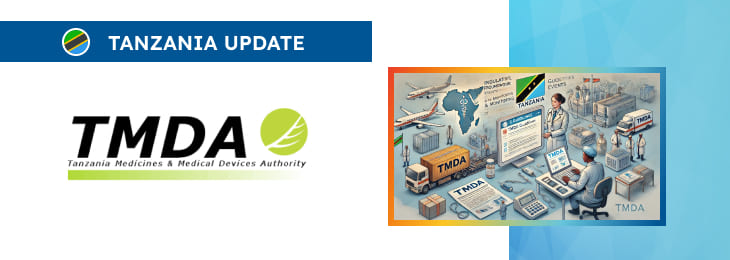This article further elaborates on the requirements related to importation of medical devices, and also explains the way adverse events should be handled.

Table of content
The Tanzania Medicines and Medical Devices Authority (TMDA), a country’s regulatory agency in the sphere of healthcare products, has published a guidance document dedicated to good review practices for the regulation of medical devices. The document provides an overview of the existing legal framework, as well as additional clarifications and recommendations to be taken into consideration by the parties involved in order to ensure compliance with the relevant regulatory requirements.
At the same time, the authority reserves the right to make changes to the guidelines and recommendations provided therein, should it be reasonably necessary to reflect corresponding amendments to the underlying legislation or changes to the respective principles.
Import and Export Review
In accordance with the applicable legislation, there are two types of import and export applications: normal and special case applications. The requirements for these applications are described in the Guidelines for Importation and Exportation of Medical Devices Including In-vitro Diagnostics and Laboratory Equipment.
Processing of normal importation applications focuses on verifying the authenticity of the uploaded documents without conducting a scientific review. However, due to the sensitivity or criticality of special importation permits, special case applications are subjected to a thorough review prior to issuance.
The first stage involves a technical assessment of the application to confirm whether the minimum requirements of quality, safety, and performance have been met for the products under application. This includes a review of all documents submitted to support the importation of unregistered devices.
The second stage is a managerial review, where the Manager reviews the assessment recommendations. The final recommendations from regulatory experts are communicated to the Directorate of Medical Devices (DMD) through the Medical Devices and Diagnostics Laboratory (MMDL) for final approval.
If the application meets the prescribed requirements, the applicant will be required to pay import fees as stipulated in the Fees and Charges Regulations in force. Upon payment, the Authority will issue an import permit.

Adverse Events/Incidents
Under the general rule, the Authority ensures the safety, quality, and performance of devices by monitoring possible occurrences of adverse events or incidents. Reporting Adverse Events/Incidents (AE/AI) aids regulatory decision-making regarding medical devices and thus constitutes an important element of the existing legal framework.
AE/AI reporting mechanisms are described in the Guidelines for Vigilance System in Tanzania. According to the guidance, the review of adverse events/incidents associated with medical devices starts with acknowledging receipt of the report to the reporter, followed by a causality assessment of the report.
The findings of the assessment determine the regulatory action to be taken. Assessment has two critical steps: first assessment and second assessment of the report. Each application is assessed by two assessors assigned based on either the severity of the incident and the first-in, first-out concept, considering the expertise and experience of the assessor.
These stages are implemented as safeguards to ensure that no critical issue is overlooked and that Good Review Practices (GRevP) are followed. This stage is complete once regulatory actions are determined and communications have been made to either the reporter or the manufacturer of the reported device.
Depending on the outcome of the assessment of AE/AI, the Authority may request changes to the information of a registered device, suspend, withdraw, or revoke marketing authorization, request additional data, or issue a public notice alert. These regulatory decisions are communicated to all stakeholders, including the reporter of the AE/AI.
Regulatory Experts
As explained in the document, the quality, timeliness, and success of review processes depend on adequate human resources, which may be internal (within TMDA) or external. The Authority may source experts from various academic disciplines, including but not limited to Pharmacy, Medicine, Biomedical Engineering, Medical Laboratory Sciences, and Biotechnology.
Under the general rule, all experts employed by the Authority are bound to Codes of Ethics and Conduct for Public Services and sign a declaration of conflicts of interest every calendar year as part of the requirements of the Public Service Regulations. An expert’s capacity relates to many factors, including scientific knowledge and skills, regulatory knowledge, and experience.
These form the core competencies for personnel involved in the various aspects of managing and conducting reviews. Effective training is a requirement for maintaining core competencies.
Thus, the Authority has developed training programs and procedures to provide consistent quality of training for all experts. Moreover, training needs assessments are conducted annually to determine knowledge gaps for individual experts as well as for the entire Directorate.
Pursuant to Section 5 (1) (e) of the Tanzania Medicines and Medical Devices Act, Cap 219, the Authority may select external experts following rigorous screening of qualifications of different professionals to ensure the integrity of reviews and recommendations. Only qualified personnel who are free of actual or perceived conflicts of interest are listed as external experts.
Being free of any conflict of interest means that the assessment decision or recommendation is not likely to be influenced by personal, family, financial, or professional motives, including those of employers when an external expert is also a consultant to a regulated party. All external experts sign confidentiality agreements and declarations of conflict of interest at the beginning of their tenure.
During the performance of any TMDA activity, external experts are mandated to adhere to TMDA’s Code of Conduct for external experts; failure to comply with the code of conduct may lead to the de-listing of the external expert before the end of his or her tenure. The TMDA External Experts include members of the Medical Devices and Diagnostics Regulation Technical Committee, External Assessors, and Individual Consultants.
The period of engagement for external assessors is one financial year, which can be renewed indefinitely based on individual performance, while for Technical Committee Members, it is three years in accordance with their respective terms of reference. The performance of external assessors is monitored annually through performance appraisal conducted at the end of each year to determine the overall quality of assessments done by the individual assessor.
This process ensures that each external assessor upholds the Authority’s core values and consistently provides quality output. Following this appraisal, the list of external assessors is updated. If an assessor’s appraisal deems that his or her work is unsatisfactory, he or she shall be delisted.
The Directorate of Medical Devices (DMD) has one technical committee, namely the Medical Devices and Diagnostics Regulation Technical Committee. The Technical Committee members are appointed from outside the Authority by the Director General upon consultation with the Director of Medical Devices and Diagnostics (DMD).
Their main role is to provide specialized advice on matters related to the regulation of medical devices to the Director General in line with the Tanzania Medicines and Medical Devices Act, 2003, governing laws and regulations, and relevant guidelines. The period of engagement for Technical Committee Members is three years in accordance with their respective Terms of Reference.
The Authority issues a public notice annually, inviting qualified external assessors to express interest in performing various regulatory activities related to the regulatory control of medical devices and in-vitro diagnostics. The period of engagement for external assessors is one financial year, which can be renewed indefinitely based on individual performance.
Performance is monitored annually through performance appraisal conducted at the end of each year to determine the overall quality of assessments done by the individual assessor. This process guarantees that each external assessor upholds the Authority’s core values and consistently provides quality output.
Following this appraisal, the list of external assessors is updated. If an assessor’s appraisal deems that his or her work is unsatisfactory, he or she shall be delisted.
Conclusion
In summary, the document outlines the key aspects of import and export reviews, handling of adverse events/incidents, and the roles and responsibilities of regulatory experts within the Authority.
How Can RegDesk Help?
RegDesk is an AI-powered Regulatory Information Management System that provides medical device companies with regulatory intelligence for over 120 markets worldwide. It can help you prepare and publish global applications, manage standards, run change assessments, and obtain real-time alerts on regulatory changes through a centralized platform. Global expansion has never been this simple.

